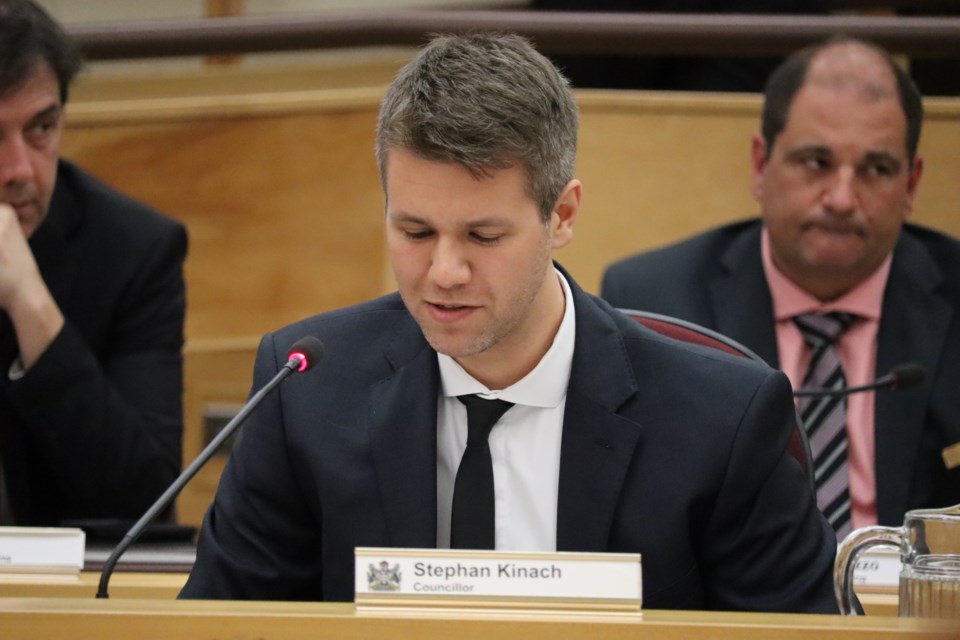A city councillor who once proposed a dramatic investment into the doctor recruitment budget says that may not have helped Sault Ste. Marie’s current doctor shortage problem because there simply aren’t enough doctors available to hire.
Shortly after he was elected in 2022, Ward 4 councillor Stephan Kinach said he wanted to the city to make a $2-million one-time investment to attract physicians to the Sault by becoming a lender for their education.
Kinach’s plan would have included a one-time $2-million investment in which the city would be the lender for student doctors on the condition they practice in the Sault upon graduation.
Reached by phone on Saturday, Kinach said the idea came from his time knocking on doors leading up to the 2022 election.
“Probably one in eight people said they didn’t have a family doctor at all at the time,” Kinach recalled. “If they had a family doctor then they knew a friend or family member that lost their family doctor to a retirement.”
The $2-million investment idea never made it to city council, but Kinach said the timing may not have helped the current situation the city is in, after the Group Health Centre recently announced about 10,000 people in the Sault will be losing their family doctor later this year.
The $220,000 spent annually between the city, Sault Area Hospital and Group Health Centre on physician recruitment and retention in Sault Ste. Marie is a far cry from the amount spent in the program about 21 years ago.
On Monday, Mayor Matthew Shoemaker told SooToday the budget for recruiting doctors in 2002 was more than $750,000 per year, but noted about $500,000 of that total was spent on incentives.
The problem with incentivizing doctors, said Shoemaker, is when every community is doing it.
”Incentives just took someone from London to work in Kingston, took someone from Ottawa to work in Windsor or somewhere else, or Thunder Bay to working in the Sault,” said Shoemaker.
He said many municipalities began scaling back on incentives for doctors, but he has noticed the trend starting to return to some within the past 18 months or so.
“I guess I would I would be disinclined to go there, except we might have to,” said Shoemaker of the idea of Sault Ste. Marie getting back into the incentivization game.
According to a program cost summary for recruitment and retention provided by the mayor’s office, the $761,000 spent by the city in 2002 yielded nine physicians recruited. The $810,000 spent in 2006 resulted in just four doctors being recruited.
The program spent $220,000 per year for physician recruitment and retention over the past four years, with between 10 and 13 physicians hired in each of those years.
In total over the past 21 years, the city has recruited a total of 205 physicians to the community, averaging almost 10 per year.
Shoemaker said that number is pretty good, but not keeping up with the need for new doctors as more physicians are leaving the community.
“We've got a lot of baby boomers practicing medicine and they are reaching the age of retirement at a quicker rate than there are graduates,” said Shoemaker.
He said the problem is not unique to Sault Ste. Marie and should have been addressed by the provincial government years ago.
Kinach said the problem isn’t necessarily with physician recruitment, but with the number of medical students being matched with residency programs. Last year, thousands of graduating students and physicians entered the Canadian Resident Matching Service, with 100 spaces unfilled in family medicine.
”So there you go, there's 100 family medicine spots that we will never get back because you can't fill them now,” said Kinach. “This is not government. This is not City. This is not provincial. This is not federal. This is the licensing bodies and these are the people who have to be held accountable.”
“You can't even blame the physician recruitments. You can't blame Group Health because if there's nobody to hire it doesn't matter how much money you put into the programs to recruit,” added Kinach.
